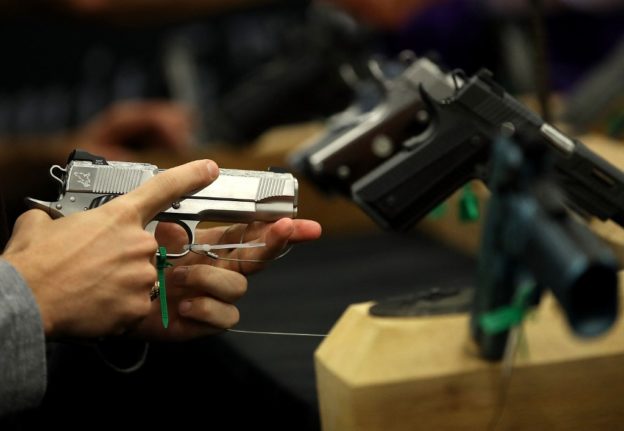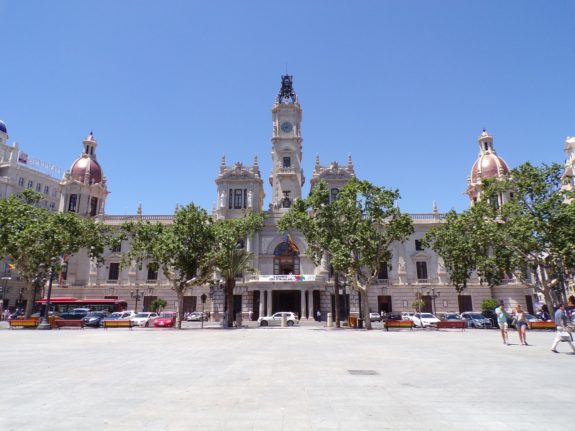When looking over the Atlantic to the United States, we often think of their gun laws as strange, foreign, and in the midst of mass shootings, outright crazy. It’s easy to assume that there are no guns in Spain, and that it’s a distinctly American thing or not something we worry about in Europe.
But the reality is that there are guns in Spain. According to 2016 data from by Spain’s Central Inspectorate for Arms and Explosives (ICAE), Spain has over three million registered arms, belonging to 1.1 million civilians, most of whom have ostensibly bought their weapons for hunting, target shooting, or as collector’s items.
Some 8,000 Spanish civilians are also authorised to carry a gun for self-defense after providing proof they are at risk.
Inventory records from ICAE show that Andalusia has the most guns in Spain, over 600,000, most of which are for hunting – while Melilla has the least with 399.
Although very difficult to gage for obvious reasons, in 2017 the Geneva Small Arms Survey estimated that Spain was home to as many as 780,000 illegally owned firearms, but that number could be higher.
But what are the rules? Here’s what you need to know about gun laws in Spain.
The law
Very simply put, you cannot carry or possess firearms in Spain without an official license or special authorisation (more on that later) from the state.
In fact, Article 149.26 of the Spanish constitution makes very clear that Spanish state alone (government and relevant police and security authorities) has exclusive control over the production, sale, possession and use of firearms and explosives in Spain.
Exceptions aside, which will be touched on below, the Spanish law in effect deems guns sporting equipment only, and sees (very few) reasons why you might reasonably need one for non-sporting purposes. Guns are available for shooting and, in what is a very popular Spanish pasatiempo, hunting.
READ ALSO How to stay safe during hunting season in rural Spain
How to get a gun in Spain
Unlike getting a gun in the United States, where arms are almost treated like chocolates or chewing gums to be picked up while waiting at the supermarket checkout, getting your hands on a weapon in Spain is much more difficult, and involves a laborious process of official tests, interviews and, of course, waiting.
To get a gun in Spain, you must:
- Be 18 years old.
- Pass a theory exam which includes questions on weapons and, crucially, gun laws and regulations in Spain. You must get at least 16/20 questions right in order to pass.
- Undergo and pass a psychological assessment.
- Once you’ve passed the psychological assessment and received the results, then begins a period (that can last up to six months) of practical training and tests. These are always carried out at legally designated shooting fields and ranges, supervised, and designed to tests the applicant’s aptitude with a weapon.
- If you pass that, you must undergo eye and hearing tests.
What are the different licenses?
- Licence A: All kinds of weapons except automatic and wartime weapons. This license is exclusively for members of the state and security forces.
- Licence B: Self-defence, allowing the possession and use of handguns under special government authorisation.
- Licence C: Ownership and possession of handguns in the context of private security duties.
- Licence D: Licence specifically intended for big-game hunting allowing the use of rifles and shotguns.
- Licence E: License specifically intended for small-game hunting, including shotguns.
- Licence F: Focused on the use and possession of sport weapons and Olympic shooting sports, including pistols and carbines.
- Licence AE: Specifically for collectors.
- License AEM (Autorización especial de Menores) A special license for children age 14 or over who want to hunt under the supervision of a parent or guardian with their own license. This AEM license is particularly difficult to obtain.
Buying and selling guns
Weapons can be sold between people with legally obtained licences in Spain, although not directly. All sales are supervised by Spain’s Guardia Civil police, and the seller must surrender the arm to the authorities before the buyer collects it on Guardia Civil premises.
Weapons can also be lent to another person for a maximum of 15 days if all the appropriate paperwork is done with the Guardia Civil and the other person also has a legally obtained license.
Ownership obligations
Legal gun owners in Spain have some responsibilities, namely keeping the firearm in a secure place and to prevent theft or loss, and to present the gun to the Guardia Civil whenever they ask.
Gun owners that lose or have their firearm stolen must report it immediately to the authorities, and if their license is lost they must surrender the weapon until new paperwork is arranged.
Self-defence
There are believed to be as many as 8,000 Spaniards with special permission to carry guns for self-defence – those declared “at risk” and issued with a B license by Spanish police.
Applicants must prove they are at risk or fear for their life, and it is believed that the majority of these special B license holdees are high-profile public figures like politicians or football players, or those who might come into contact with criminals, such as gun-sellers, judges or magistrates, and former police and military personnel. The weapons must be concealed.
There has been debate in recent years over the use of firearms for self-protection in Spain, with notable cases of gun owners jailed for shooting in self-defence, including a man in his 80s who was sent to jail after shooting an assailant who broke into his home in Tenerife and attacked his wife.
READ ALSO Far-right Vox party wants to loosen Spain’s gun laws
It has been a recurring populist talking point of far-right party Vox, with leader Santiago Abascal calling for the loosening of gun control in Spain.



 Please whitelist us to continue reading.
Please whitelist us to continue reading.
Member comments